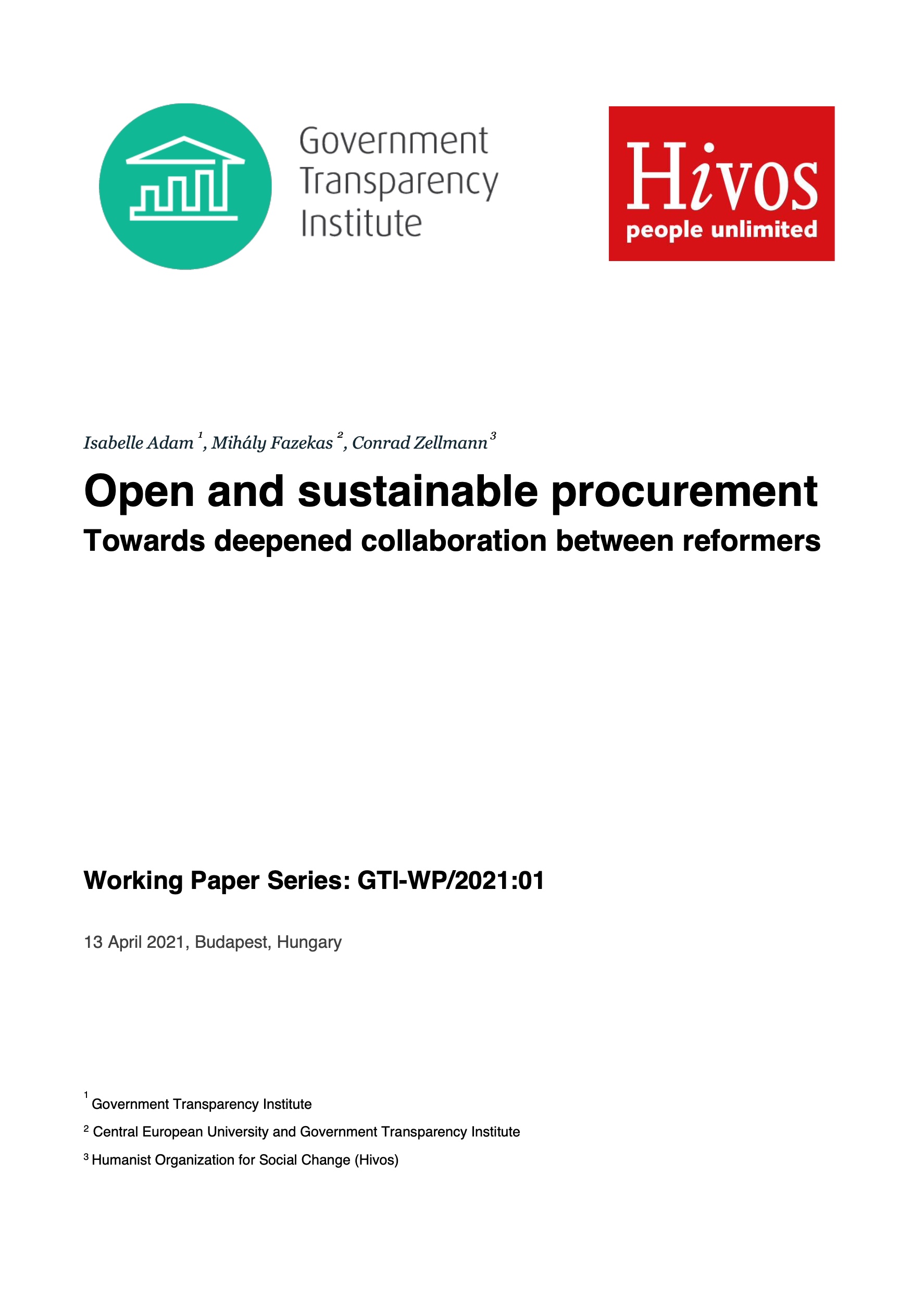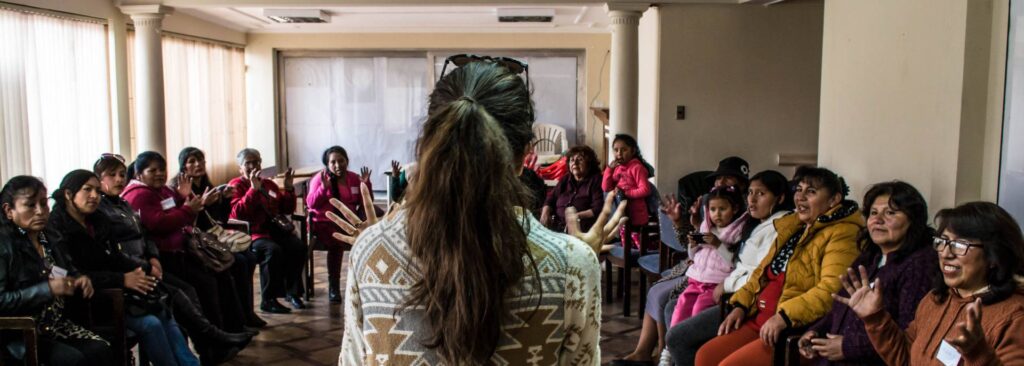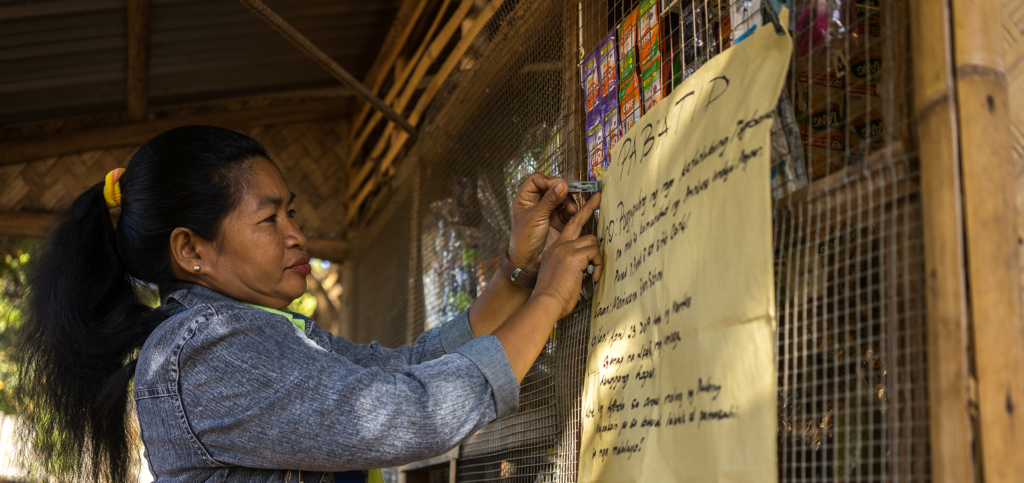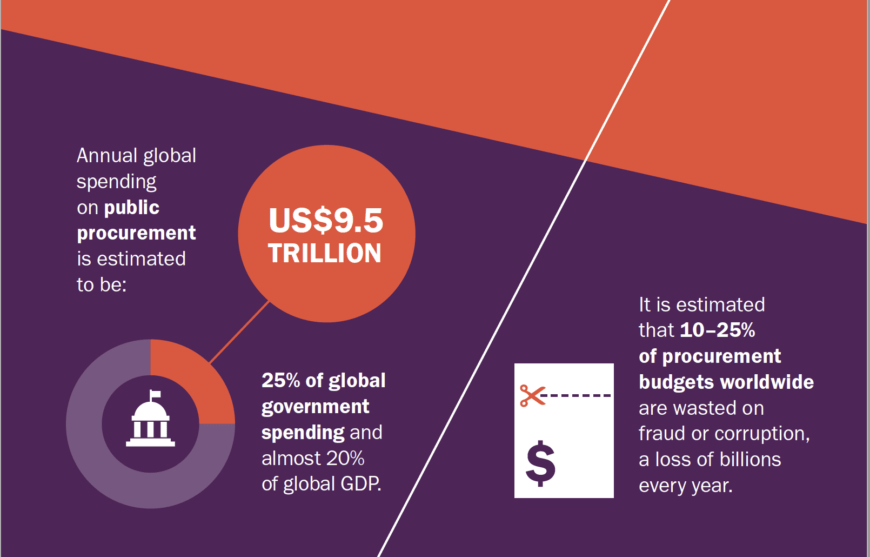By Isabelle Adam, Mihaly Fazekas and Conrad Zellmann
One year into the Covid-19 pandemic, societies are looking ahead to major challenges. We need a recovery, response and renewal that drastically increases social inclusion and matches the urgency of the climate crisis. Governments spend more than 12 trillion USD annually through public procurement. This represents an important major lever for action. At the same time, public procurement is a major risk area when it comes to corruption, mismanagement and waste. In sectors like construction, between 10-30% of contract values are at stake.
Our discussion paper on open and sustainable procurement explores one area where greater collaboration among reformers could make public spending more effective and accountable.
Public procurement in the spotlight
Covid-19 has put public procurement in the spotlight as perhaps never before – for good and for ill. When the pandemic started, governments struggled to buy quality personal protective equipment. Now it’s sufficient quantities of vaccines they’re scrambling for. Around the world, we have seen reports of opaque and corrupt contracting in the Covid-19 response.
At the same time, we are seeing many examples of collaboration across government, civil society and business to increase the transparency and effectiveness of procurement as a frontline tool in the Covid-19 response. Here are some recent examples from Chile and Lithuania detailed by our friends at the Open Contracting Partnership.
This importance of procurement at a strategic level, and in response to urgent challenges, has motivated reform efforts in two related fields: Sustainable Public Procurement (SPP) and Open Contracting (OC). Both fields have made important advances over the last decade. Evidence shows procurement reform is possible and effective both at national levels and locally, such as in Makueni (Kenya), Bogotá and Cape Town. It also highlights the focus and tenacity that it requires from champions within and outside of government.
Our experience with related fields of reform
Over the last years, Hivos has worked with open contracting reformers on the one hand, and sustainability champions on the other, e.g. in the food and energy sectors. In our experience, reformers are largely aligned in terms of long-term goals and have a genuine interest in greater collaboration. Yet, openness and sustainability advocates are often advancing their work separately.
That is why we were interested in exploring the intersection between open and sustainable procurement reforms in more detail. Based on a review of the key literature and a few interviews with practitioners, our discussion paper outlines the potential for mutual reinforcement and impact across the two fields – as well as possible tensions – and paths towards closer collaboration.
Sustainable procurement and open contracting can reinforce each other
In our analysis, sustainable procurement and open contracting can reinforce each other by generating interest, motivation and capacity among key stakeholders.
OC principles and practices can create the transparency and trust needed at early stages of reforms. They help overcome pressure from existing non-sustainable suppliers and create safeguards against corruption. These principles also help address “cost” concerns that hold back wider adoption of sustainable procurement by providing detailed data on long-term savings. Additionally, the application of OC principles will help ensure interoperability of procurement data systems.
In turn, SPP advocates create a public policy focus on tackling critical supply challenges with strategic procurement. Both SPP and OC reformers recognize the importance of public procurement as one of the key financial levers for progressive government policy. They bring highly complementary expertise to this task – on what and how government buys.
In some cases, reformers from both fields are already collaborating – for example in the EU context and in La Paz, Bolivia. Increasing this engagement has great potential to build stronger momentum for the strategic use of public procurement. Joined-up approaches at the technical level can help ensure that reforms stick and make a difference in practice.
We want to explore new avenues of opportunity
This paper is only a first step, but we hope it will encourage both open and sustainable procurement advocates and practitioners to explore new avenues of opportunity. This could help identify more examples for existing collaborations to learn from, and point to new areas where reformers can pilot joined-up policy and practice. Hivos and GTI will be eager to contribute to such conversations. Hivos with a focus on supporting civil society engagement to increase demand and support for reform, and GTI through high-quality policy research.
We look forward to discussing the findings of our paper with interested advocates and practitioners and invite you to get in touch with us.








